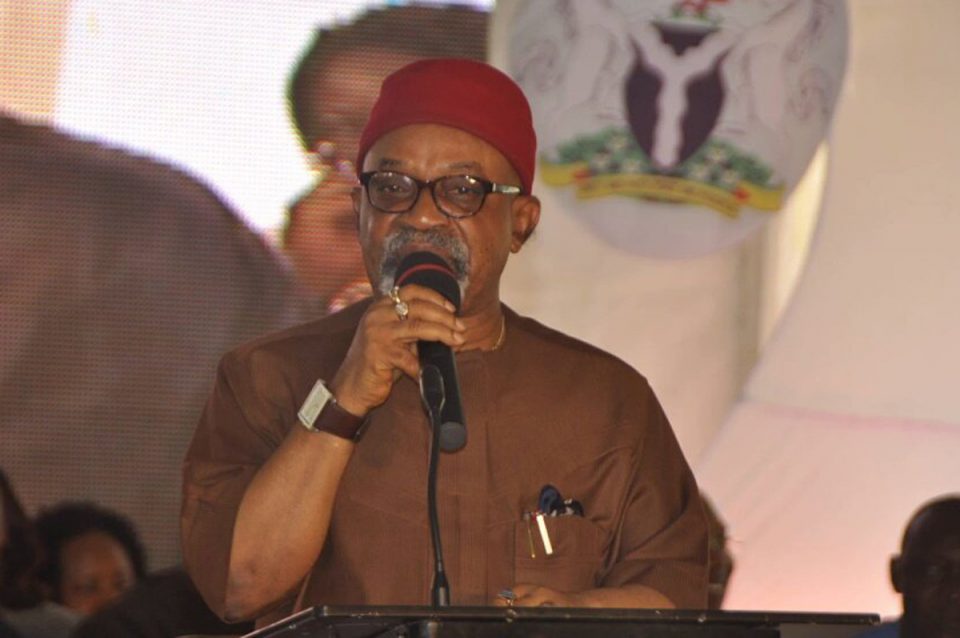The Federal Government has expressed optimism that courts and state assemblies would re-open next week, following the resolution it reached with the striking workers in the sectors.
The Minister of Labour and Employment, Sen. Chris Ngige, stated this while addressing journalists at the end of a closed door meeting between the government and workers’ unions on Friday in Abuja.
The meeting was called to smoothen the grey areas in the Memorandum of Action (MoA) reached on May 20.
TBI Africa reports that Judicial Staff Union of Nigeria (JUSUN) and Parliamentary Staff Association of Nigeria (PASAN) had embarked on nationwide strike on April 6.
They began the strike after the expiration of the 21-day ultimatum earlier given, over the failure of the government to implement the law recognising financial autonomy for the judiciary and the legislature.
Ngige said the Chairman, Governors Forum, Gov. Kayode Fayemi of Ekiti State, and his Deputy, Alhaji Aminu Tambuwal of Sokoto State, have put their pen on paper on behalf of their colleagues on the historic agreement which they reached on May 20th.
According to the minister, with what we achieved at the meeting, it is expected that the courts and state assemblies will re-open next week, since all the grey areas have been smoothened.
“So, today we met with the unions in a small dialogue to dot the i’s and cross the t’s in the agreement which we agreed on May 20. Right now, we expect the unions to go back to their members and give them final briefing on what we have achieved today.
“And with this achievement of today, we are hopeful that by next week, the chambers of our courts and the doors of the state assemblies will be open for business activities,” he said.
Ngige said they were not oblivious that this situation has posed serious challenges to the nation, especially as the courts were closed and the law enforcement agencies have no place to take arrested criminals.
He, therefore, commended the unions for the efforts put in place in the final round of the dialogue where modalities that were not very clear have been sorted to the satisfaction of both sides.
Speaking, the Deputy President of JUSUN, Mr Emmanuel Abisoye, commended the minister for his efforts in resolving the dispute, saying that he expects all the parties to fulfill their part of the agreement.
Abisoye assured that JUSUN would play its part and expressed hope that the governors would do the needful to ensure that industrial harmony returns to the courts.
Also, the President of PASAN, Mr Mohammed Usman, expressed optimism that all stakeholders would do the needful within the shortest possible period to see that the workers in the state legislatures return to work.
Mr Ayuba Wabba, the President, Nigeria Labour Congress (NLC), commended all the parties for reaching the milestone.
“It is necessary to ensure that industrial harmony strives in these sectors of our economy. It is important that this issue is put behind us,” Wabba added.
The Senior Special Assistant to the President on Niger Delta Affairs and Secretary of the Implementation Committee for Judicial/Legislative Autonomy, Sen. Ita Enang, commended Mr President and the Labour Minister for their efforts thus far to attain autonomy for the state legislature and judiciary.
He said the country cannot afford further closure of the courts and state assemblies having arrived at this stage. He added that the latest development would heal the security, human rights and political temperature of the country.
President Muhammadu Buhari had on May 22, 2020, signed into law an Executive Order granting financial autonomy to the legislature and the judiciary across the 36 states of the federation.
The Executive Order No. 10 of 2020 made it mandatory for all states to include the allocations of both the legislature and the judiciary in the first-line charge of their budgets.
The order also mandates the accountant general of the federation to deduct from source amount due to the state legislatures and judiciaries from the monthly allocation to each that refuse to grant such autonomy.




